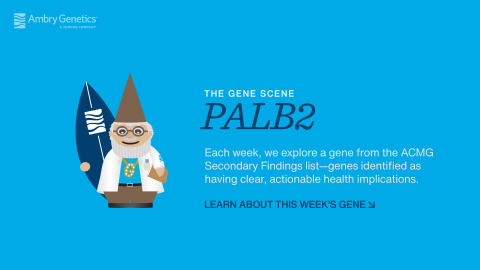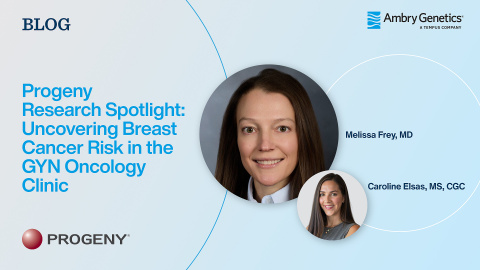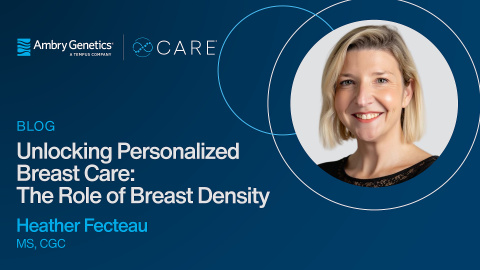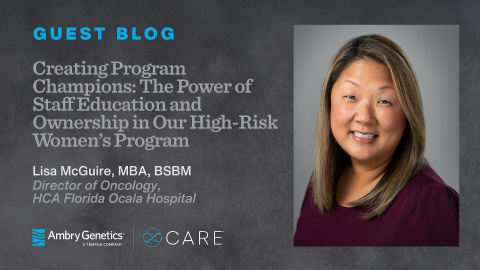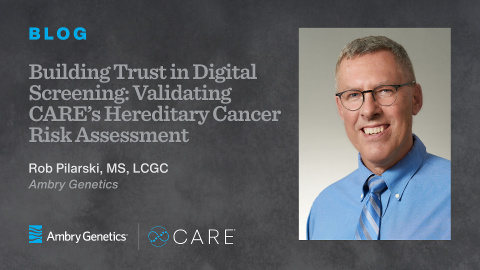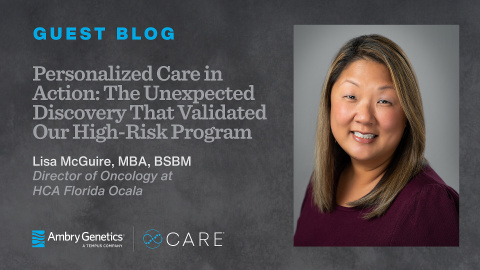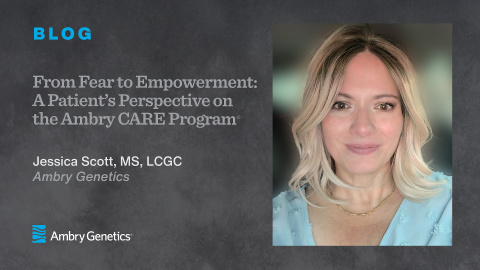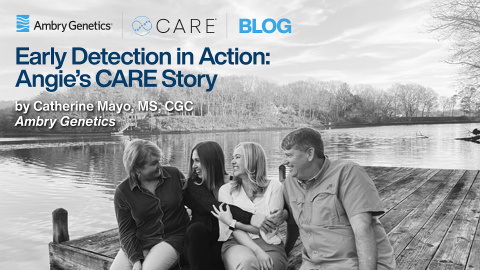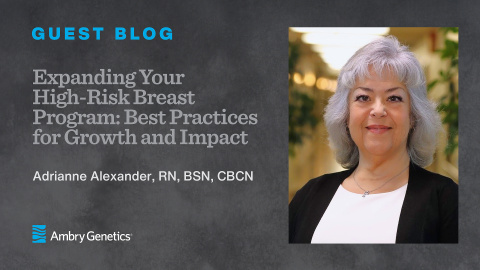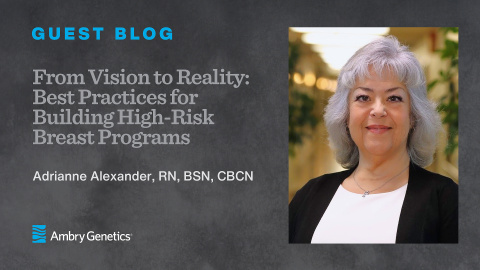- By Shabnam Asgari, MS, CGC
- Posted November 4, 2025
The Gene Scene: PALB2
Welcome to the Gene Scene! Each week, we will explore a gene from the ACMG Secondary Findings list—genes identified by the American College of Medical Genetics and Genomics as having clear, actionable health implications.These genes are included because they’re linked to serious but preventable or manageable conditions when identified early.…
- By Caroline Elsas, MS, CGC
- Posted October 22, 2025
Progeny Research Spotlight: Uncovering Breast Cancer Risk in the GYN Oncology Clinic
Dr. Melissa Frey, a gynecologic oncologist, cancer geneticist, and researcher based in New York City—is redefining what gynecologic (GYN) cancer survivorship can look like. In our last blog featuring Dr. Frey’s research, we explored how her clinic transformed family history collection and risk assessment using Progeny. At first, Dr. Frey…
- By Heather Fecteau, MS, CGC
- Posted September 24, 2025
Unlocking Personalized Breast Care: The Role of Breast Density
Since September 10, 2024, every mammogram facility in the U.S. is required to provide patients with a clear summary of their breast density—bringing awareness of this important factor front and center.1 While breast density significantly influences risk, it’s only one piece of a larger puzzle. To improve early detection and deliver truly…
- By Lisa McGuire, MBA, BSBM
- Posted July 16, 2025
Creating Program Champions: The Power of Staff Education and Ownership in Our High-Risk Women's Program
When we partnered with Ambry to launch our High-Risk Women's Program (HRWP) at HCA Florida Ocala in 2023, I was excited about the potential to improve early cancer detection and even prevention in our mammography patients. The Ambry CARE Program® (CARE) provided the digital tools we needed to assess hereditary and breast cancer risk based on…
- By Robert Pilarski, MS, LGC
- Posted June 26, 2025
Building Trust in Digital Screening: Validating CARE’s Hereditary Cancer Risk Assessment
As a certified genetic counselor who spent eleven years on the National Comprehensive Cancer Network® (NCCN®)'s committee for the NCCN Clinical Practice Guidelines in Oncology (NCCN Guidelines®) for breast, ovarian, and pancreatic cancers, I've witnessed firsthand the challenges clinicians face in accurately identifying patients who meet criteria…
- By Lisa McGuire, MBA, BSBM
- Posted June 4, 2025
Personalized Care in Action: The Unexpected Discovery That Validated Our High-Risk Program
As the Director of Oncology at HCA Florida Ocala, I've witnessed firsthand how the combination of innovative technology and dedicated healthcare teams can transform patient outcomes. When we launched our high-risk women's program in 2023, I served as project manager, coordinating the implementation of the Ambry CARE Program® (CARE) across our…
- By Jessica Scott, MGC, CGC
- Posted January 15, 2025
From Fear to Empowerment: A Patient's Perspective on the Ambry CARE Program
We talk about the Ambry CARE Program® (CARE) a lot – how it helps providers identify high-risk patients, offers genetic testing and genetic counseling at scale, and gives patients insights to help them better manage their health. All of that is very powerful, but people also often ask what CARE looks like from the patient’s perspective.…
- By Catherine Mayo, MS, CGC
- Posted October 31, 2024
Early Detection in Action: Angie’s CARE Story
October is Breast Cancer Awareness Month. Some of the best defensive strategies against breast cancer are early detection and risk reduction, but high-risk individuals can be missed with some routine screening processes. The Ambry CARE Program® (CARE) helps healthcare providers consistently identify high-risk patients by assessing patients’…
- By Adrianne Alexander, RN, BSN, CBC
- Posted July 17, 2024
Expanding Your High-Risk Breast Program: Best Practices for Growth and Impact
One of the accomplishments I am most proud of is driving the creation of a successful high-risk breast program in a large community-based health system. I am often asked how we did it. For advice on getting started, check out the first blog in this series. If you have already implemented a high-risk breast program, congratulations! It’s time…
- By Adrianne Alexander, RN, BSN, CBC
- Posted June 20, 2024
From Vision to Reality: Best Practices for Building High-Risk Breast Programs
Breast cancer remains the number one most common cancer among women in the United States, and the number two leading cause of cancer deaths among women.1 Approximately 20% of all breast cancer cases are associated with a family history of breast cancer, and approximately 10% are hereditary (due to pathogenic variant or mutation in a gene).2,3…
